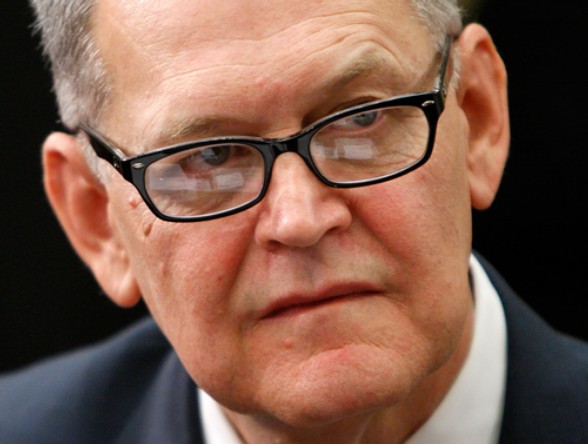Submitted by Wendell Potter on
When Republicans talk about how the American health care system should be reformed, they typically mention two things: allowing insurance firms to sell policies across state lines, which I wrote about last week; and malpractice reform.
 Newly-elected Republican governors, like Bill Haslam in Tennessee, are also pushing malpractice reform at the state level. They contend that such reform — favored by businesses and medical associations — would not only bring down the costs of health insurance premiums, it would also bring doctors flocking to their states to practice. Former House Speaker Newt Gingrich, who is considering another run for the White House, has touted malpractice reform as one of the primary "solutions" he would pursue if elected president. He claimed during a GOP-sponsored panel last week that malpractice reform would nearly eliminate unnecessary care that results from all those tests doctors order and drugs they prescribe just because they fear being sued. "The cost of defensive medicine," he claimed, "is $800 million a year."
Newly-elected Republican governors, like Bill Haslam in Tennessee, are also pushing malpractice reform at the state level. They contend that such reform — favored by businesses and medical associations — would not only bring down the costs of health insurance premiums, it would also bring doctors flocking to their states to practice. Former House Speaker Newt Gingrich, who is considering another run for the White House, has touted malpractice reform as one of the primary "solutions" he would pursue if elected president. He claimed during a GOP-sponsored panel last week that malpractice reform would nearly eliminate unnecessary care that results from all those tests doctors order and drugs they prescribe just because they fear being sued. "The cost of defensive medicine," he claimed, "is $800 million a year."
They often cite Texas as a role model. In 2003, the Lone Star State enacted the sort of malpractice reform now being called for by many Republicans nationwide. Several other states, including California, have also enacted malpractice reforms. The various laws and proposals all have one thing in common: a cap on how much a patient could recover from the courts if harmed because of errors made by doctors or hospital personnel.
Lessons from Texas' Malpractice Reform Experiment
But a closer look at what has happened in Texas raises doubts about many of the claimed benefits of malpractice reform.
Over the last decade, health care spending and individual out-of-pocket health insurance expenses have actually risen faster in Texas than in the rest of the country, says Alex Winslow, executive director of Texas Watch, a nonpartisan organization that advocates for consumer and patient rights.
At the same time, the number of people without insurance in Texas has continued to climb. In fact, according to the U.S. Census Bureau, Texas leads the country in the number of residents without health insurance. One out of every four Texans is uninsured, compared to about one in six in the nation as a whole.
While some doctors have indeed moved from other states to Texas, the state still ranks 41st in the number of doctors per capita. Texans continues to face an acute shortage of primary care physicians in particular, especially in rural areas.
Some other stats from Texas Watch: family health insurance premiums have risen almost five times faster than income, and Medicare spending has risen 16 percent faster than the national average since Texas capped noneconomic damages at $250,000. And four of the country's 15 most expensive health markets as measured by Medicare spending per enrollee are in Texas.
I asked Alex Winslow what he thought about Tennessee Governor Haslam's proposal to repeat the Texas experience in Tennessee. Here's what he said:
Tennessee families should not be forced to endure the same pain that Texas families have faced for the last eight years. In Texas, we have learned firsthand what happens when you severely restrict the rights of patients. Insurance companies and some corporate medical providers get richer while patients struggle to keep pace with soaring medical costs and inadequate access to care without doing a single thing to deal with the epidemic of medical errors. If Tennessee lawmakers are serious about reforming health care, they should focus on the real problems of cost, access, and quality and not be distracted by the insurance industry's talking points.
Winslow correctly notes that the insurance industry is a leader in the effort to get malpractice reform implemented in both Washington and the states. Keep in mind that insurers also sell policies for doctors to protect them from litigation. They have a vested interest, just as the doctors do, in getting lawmakers to cap damages.
If they are successful, the rest of the country will likely look more like the Lone Star State. They say everything's bigger in Texas. That includes medical bills.

Comments
Darlene Cunningham replied on Permalink
Tennessee